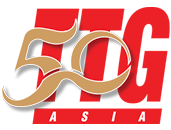
Luxury tourism players are expected to be the first in the industry to see a revival of Chinese outbound travellers who will also be drawn to safe and secure hotels as well as attractive travel discounts and promotions, opined an expert in Chinese hospitality and tourism marketing technology.
Speaking on Travel Daily’s Hotel Owners, General Managers and Senior Executives Summit in June, Anita Chan, CEO of CompassEdge, noted that a McKinsey & Company study on Chinese consumer sentiment between April 9 and May 24, 2020 had found much stronger confidence in economic recovery compared to respondents elsewhere in the world.

At the same time, forecasts by Ctrip’s Tourism Big Data Lab are predicting a return in overseas flight bookings among Chinese travellers in October, as well as across November and December.
Sharing her own predictions on Chinese outbound travel in a post-lockdown world, Chan said luxury leisure travel would likely drive recovery due to the Chinese central government’s call on companies to cut back on corporate travel spend and the substantial spending power of the well-heeled in China.
Along the same line, luxury hotels are expected to lead an accommodation revival.
In fact, hotels in general – perceived safer in a health and safety-focused post-pandemic travel environment – were expected to be in a more favourable position than short-stay sharing economy accommodation options, like Airbnb, opined Chan.
Data from Chinese search engine, SO.com, indicated that hotel searches for domestic trips were surpassing that of short-stay sharing economy accommodation.
She predicted that future outbound travel could follow a similar trend, with Chinese travellers favouring hotels over home-sharing. Chan opined that the preference for hotels could also be driven by lower language barriers in overseas hotels, safety of the hotel’s location, and the availability of amenities nearby.
Discounts and promotions would drive Chinese outbound travel demand, as seen from the prevalence of such efforts within China by Chinese companies, including WeChat, reckoned Chan.
While health and safety would remain prime considerations for Chinese travellers, hotels would need to deploy promotions to be competitive as travel resumes.
Chan also predicted continued market dominance by Chinese OTAs. Compared to other travel markets across the globe, OTAs wield considerable market influence in China. According to data from SO.com, month-on-month outbound travel searches with OTAs have been on the rise.
While OTAs elsewhere may have been associated with inflexibility, inaccessibility and unreliability during the cancellations and rescheduling caused by Covid-19, Chan noted that Chinese OTAs have responded well to the challenges. Ctrip, for instance, was able to leverage on its Global SOS Emergency Response Platform, which was launched years ago.
According to Chan, the programme shined through particularly during the pandemic, where customers were provided with assistance on flights back to China and on securing accommodation.
Citing another example, Chan said Alibaba’s Fliggy offered customers a full refund shortly after the outbreak in China. Should tourism suppliers lack funds for a full refund, the OTA would step in to repay consumers through a RMB 1 billion (US$143 million) fund obtained via Ant Financial Services Group, an affiliate company of the Chinese Alibaba Group; this would be considered as a loan on the part of tourism suppliers.
These initiatives reflected the commitment of Chinese OTAs in building relationships with customers and safeguarding their interests. Hence, overseas tourism suppliers looking to attract Chinese travellers would need to rely on Chinese OTAs, Chan said.
– Translated by Angela Teo; this article was first published in TTG China



















